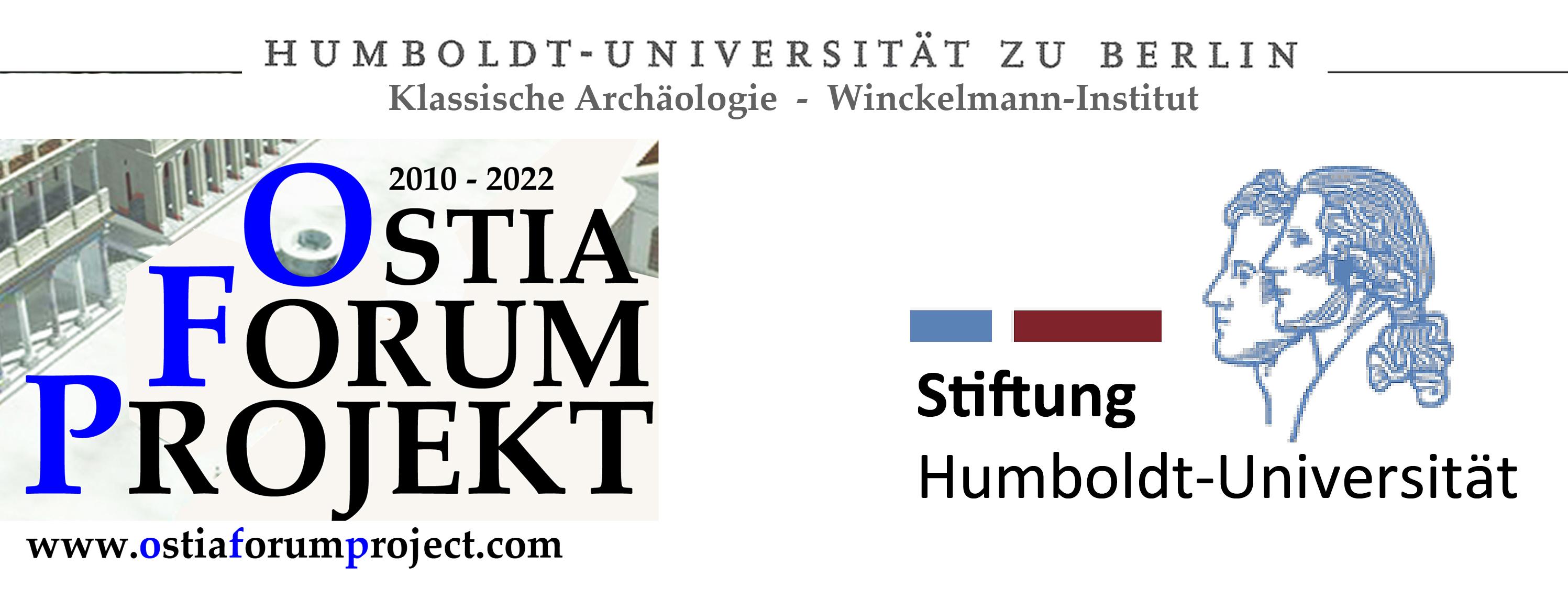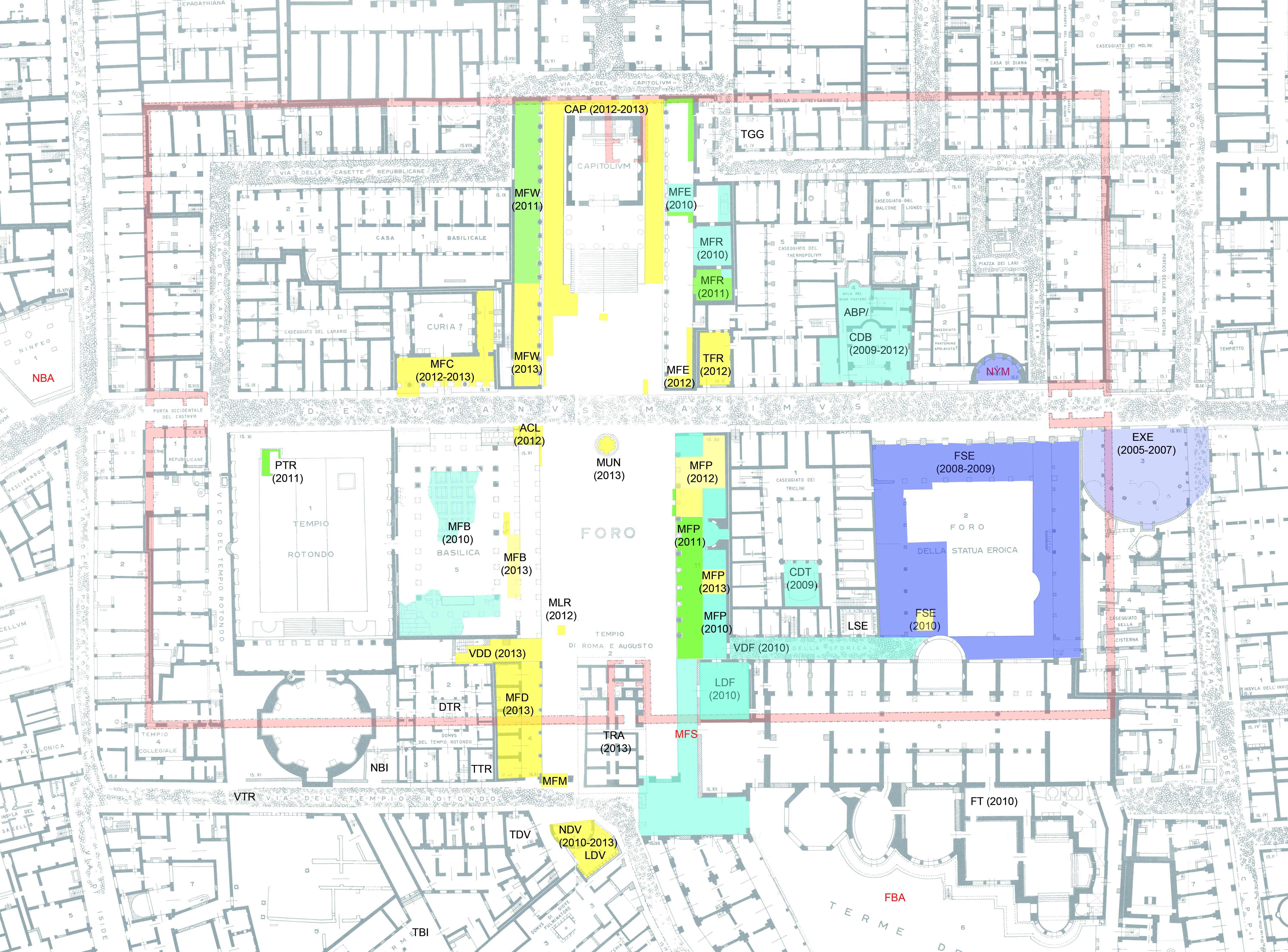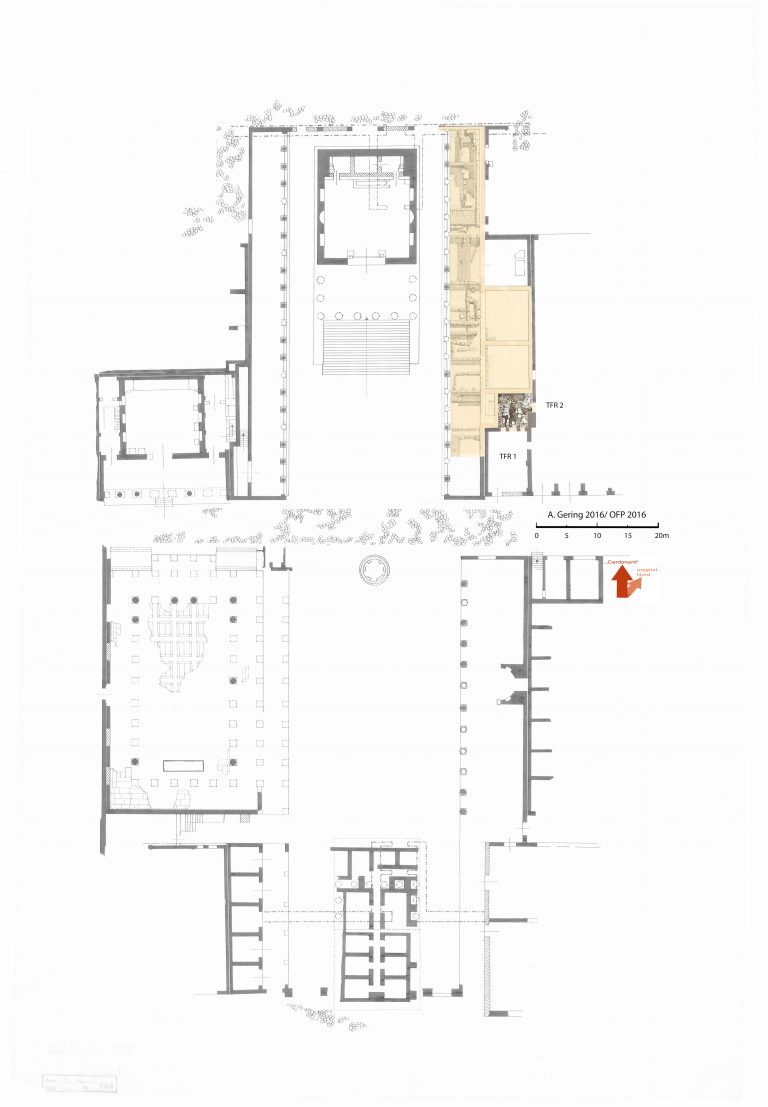Doctoral Scholarship: The deadline has been extended
The application-deadline for Theme 3 (Coins in Context) is extended
The Ostia-Forum-Project (OFP) – thanks to Stiftung-Humboldt-University (SHU) – offers a maximum three-year funding for a PhD-thesis focussed on the working-up of all coin-finds from former and coming OFP-campaigns in the centre of Ostia antica (Italy). It is funded by 1500€ monthly, per year you can additionally get up to 1000€ for travel expenses and after finishing your PhD, you could apply for up to 6000€ covering the printing-expenses of the PhD-thesis in the OFP series.
The material consists of more than 900 coins, found between 2010 and 2019 at the Forum in superficial cleaning-areas and excavation-trenches from mid Republican times to the end of Antiquity. A certain part of these coins has already been cleaned, conserved and analysed, but this is an ongoing process. The main part of these coins comes from stratified contexts in recent excavation-trenches. The unusual high number of more than 600 late-antique coins (3rd until 5th century AD) can be explained by their deposition, due to a common collapse-catastrophe in Ostia’s city-centre, which externally can be dated around the mid 5th century AD. The applicant should be interested and involved in the whole archaeological process from the finds-documentation consisting of a database, measuring, weighing, the manual cleaning and conservation until the final analysis and interpretation. The Ostian material is extraordinary in at least four regards:
a.) such a high number of late-antique coins has so far never been documented in the city-centre of Ostia,
b.) it could be paralleled with other recent coin-hoards from the periphery of Ostia, maybe underlining the theory of a major collapse catastrophe of the whole city,
c.) the latest coins could show which archaeological contexts and buildings were repaired even after this hypothetically widespread collapse of the 5th century AD, an extremely interesting approach to late antique urbanism through numismatic analysis,
d.) especially the nummi and the divided coins could give a unique insight into the circulation-process and the monetary-system of the widely unknown 5th century AD. Thus, this research can be fundamental for the history of economy of the 5th century AD, because the collapse-catastrophe has preserved the status quo of all coins being circulated at this time.
If you already have experience and/or a strong research interest in Roman coins with a focus on late antique coins of the 4th and 5th century AD and their impact on the local evolution of Ostia and the economic history in general, you are most welcome to apply for Theme 3 at OFP!
The application-deadline is extended until the 10th of November 2019.
On specific requests, it is also possible to get a personal deadline later for the full-application, if needed. Before you apply in any way, please contact the following mail axel.gering@web.de for further details.
For information about the doctoral process, see following link: Doctoral positions
The Ostia Forum Project is anchored in the Stiftung Humboldt-Universität. For more information about the Stiftung Humboldt-University, click here.
The selected candidates will be enrolled into the Winckelmann-Institut at the Humboldt Universität zu Berlin. For more information about the Winckelmann-Institut, click here.


